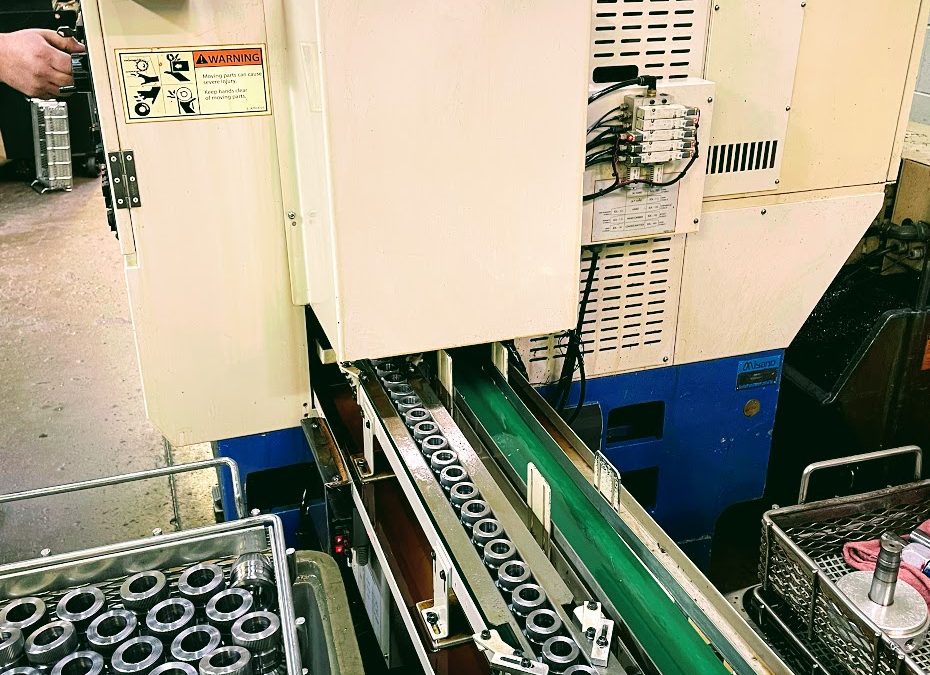Machining is an important aspect of many businesses. Selecting the right machining vendor is a critical decision that requires careful consideration. There are several factors you should evaluate when choosing a machining vendor, such as quality assurance, certifications, equipment and technology capabilities. This article will explore these factors and provides guidance on how to choose the right machining vendor for your business.
Factors to Consider When Choosing a Machining Vendor
Examining a variety of criteria is essential when selecting a machining provider to confirm the desired outcome is achieved.
- Cost is an important factor to consider when choosing a machining vendor. It is important to determine the cost of the services, as well as the cost of the materials used.
- Additionally, the quality of the machining vendor’s services should be assessed. This includes the quality of the machining processes used, the quality of the products produced, and the level of customer service provided.
- Consider the experience of the machining vendor. This includes factors such as the length of time they have been in business, their industry knowledge, and the types of services they offer.
- The reputation of the machining vendor should be investigated, as well as their compliance with safety and environmental regulations.
- Knowing the machining vendor’s turnaround time is also important, as it can affect the delivery of the products.
Understanding the different factors involved in selecting a machining vendor can make sure the right provider is chosen for the job. By taking the time to research and evaluate the available machining vendors, businesses can make an informed decision and select the best provider for their needs.
Quality Assurance and Certifications
It is important to understand the company’s quality assurance and certifications to ensure the machining vendor is capable of meeting your company’s needs. Quality assurance is the process of guaranteeing the machining process is performed according to standards and the product performs as expected. Certifications can provide evidence the company is knowledgeable and experienced in the machining process. Additionally, the vendor should be able to provide evidence of proper training and adherence to safety standards.
When assessing a machining vendor’s quality assurance procedures, companies should ask for evidence of the vendor’s quality control systems, such as process documentation, quality control records, and inspection reports. Verify the vendor’s commitment to safety, by looking at their safety record and any additional safety certifications they may have.
Companies can also ask for references from the machining vendor’s previous customers to get an understanding of their customer service and overall performance. By taking the time to research and evaluate the quality assurance and certifications of the machining vendor, companies can be confident they are choosing the best vendor for their machining project.
Equipment and Technology Capabilities
Equipment and technology capabilities also need to be evaluated when choosing a machining vendor. The vendor should have the latest machinery and technology to certify the process is efficient and cost-effective. The vendor should be knowledgeable about the latest trends in the machining industry and be able to provide the best solutions for your business.
Before selecting a vendor, understand the range of tools and technology they have available for use. This includes assessing the quality of the tools, the types of materials they use, and the level of automation they have. Additionally, inquire about the vendor’s ability to customize tools and technology in order to meet the specific requirements of a project. Lastly, the vendor should be able to demonstrate their experience and proficiency in using the necessary tools and technology.
Selecting a Machining Vendor
Making an informed decision regarding the selection of a machining vendor requires a thorough examination of their equipment and technology capabilities. Review the quality of services they offer and assess their ability to meet the specific needs of the business. It can be beneficial to inquire about the vendor’s maintenance and repair services, and the availability of spare parts for their equipment.
The vendor should be able to provide an accurate and detailed quotation that includes labor and material costs, as well as any additional fees. They should be assessed in terms of their reputation, customer service, and financial stability. Reviews from past customers can be a valuable source of information regarding their experience with the vendor. Additionally, the vendor should be able to provide references from existing customers that can be contacted to gain an understanding of their satisfaction with the services provided.
The selection should be based on the vendor’s ability to meet the business’s requirements and provide quality services that are cost-effective and reliable. Consider the vendor’s long-term commitment to the business and the potential for a successful partnership.
Consider the long-term impact of the choice of a vendor, as well as the immediate impact. Make sure the selected vendor can meet the demands of the project and can provide the necessary support for the long-term.
At Avanti Engineering, we are committed to providing our customers with the highest quality machined parts. We strive to meet and exceed client expectations with everything we do. Our customers can trust us to deliver exactly what they need, as we guarantee the quality of our products. Contact Avanti Engineering today for your machining needs.
